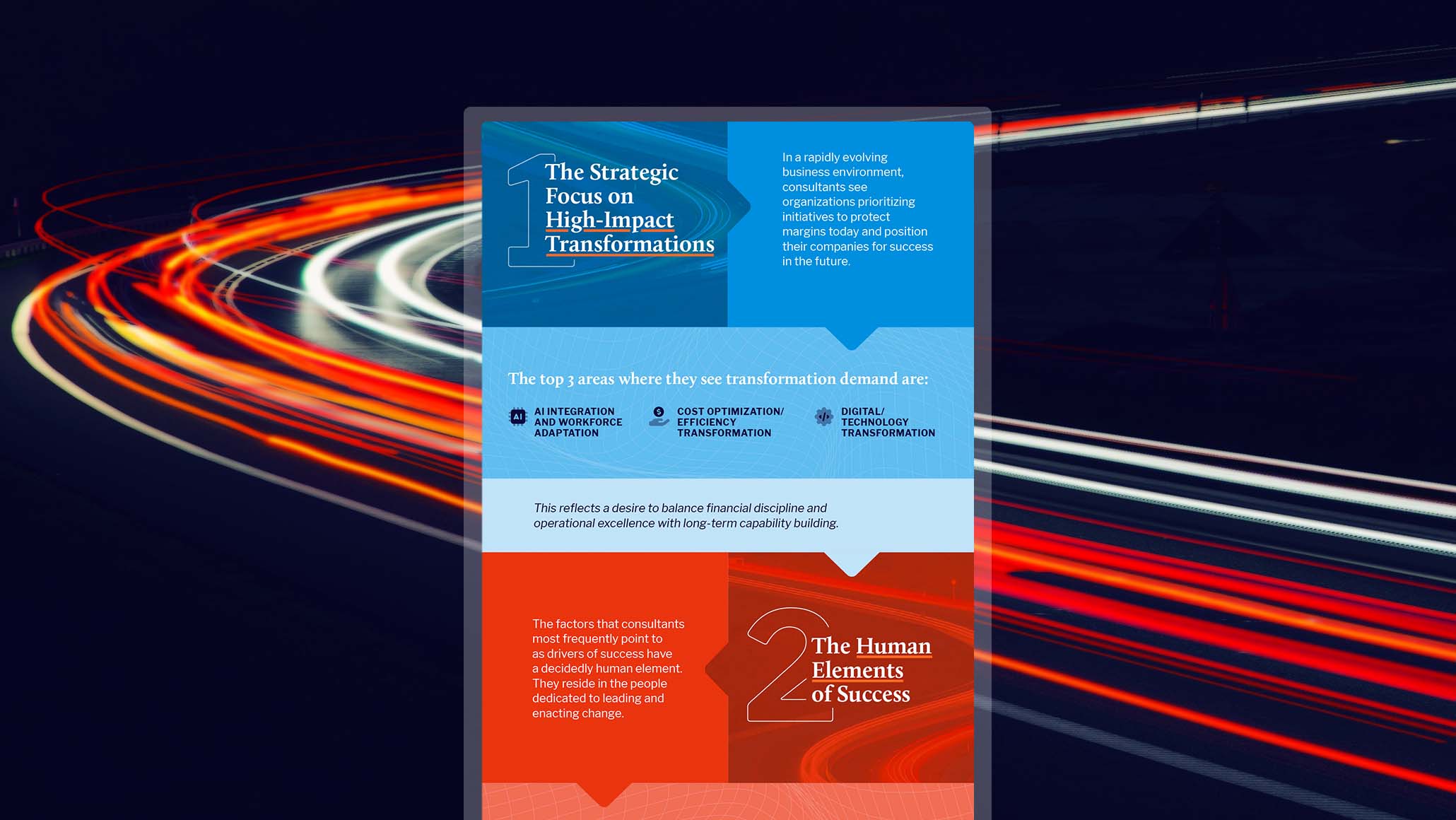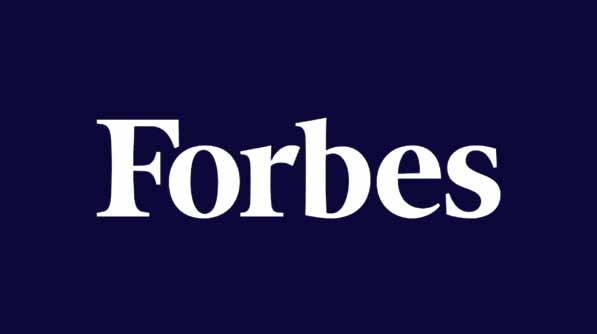Expert Perspectives: The Big Consulting Model Is Overdue for Change

People used to think cabs were either yellow or checkered. Today, we have a smartphone app for that. Razors used to be one of two brands. Almost overnight the razor industry has been turned on its head. Imagine the legacy TV network executives laughing at a new “competitor” that planned to charge $7 per month without advertisements. I can go on and on from financial services, retail automotive, and beyond.
We live in an era of continuous disruption and growing options in all parts of the market, from high to middle to low. A consulting industry traditionally dominated by global giants with brand names like PWC and McKinsey, which generated some $250 billion in 2016, is now ripe for disruption too.
The causes of disruption range from an increased need for agility and efficiency on the client side, massive cost overheads and structural inefficiencies within big consulting firms themselves, and the emergence of on-demand expertise from boutique consulting firms and on-demand talent that offer clients more focus and deeper expertise at a lower cost. It’s never been easier to find just the right option and solution for just the right project challenge.
Let’s explore these forces disrupting Big Consulting and the alternatives that are emerging for clients in need of outside expertise.
4 Inefficiencies of a Big Consulting Model
Just as market forces from high overhead costs to inefficiency to digital technologies disrupted cabs and hotels, similar forces are at work when it comes to disrupting big consulting firms.
1. The big consulting model hasn’t changed with the rest of the world.
The basic business model of big consulting firms hasn’t changed in more than one hundred years, while the business landscape and the companies they serve have changed dramatically. Big consulting firms have a leverage-based model where they seek to staff as many people as possible for as long as possible. While large consulting firms understand the need to deliver great work for their clients, their primary incentives are based on partners selling more work and staffing more people. Client satisfaction and feedback, while important on the surface, are not what will determine if a big consulting firm had a good year or not.
Now contrast the incentives of a big consulting firm with a smaller boutique firm. The smaller consulting firms are forced to be more creative in how they do their work and how they engage their clients. Often one or two clients can make the difference between success and failure for a boutique consulting firm. This dynamic creates an atmosphere where the smaller consulting firm is hyperfocused on over-delivering on their client’s challenges and doing so in a way that will ensure they’ll remain the partner of choice.
At the firm that I work at, Clarkston Consulting, we’re obsessed with understanding what our clients’ needs are and building everything we do around that. We recognize that to be hired as a smaller consulting firm, the bar is higher for us. Volume isn’t ultimately what we’re after. Our business model is based on being agile and meeting our client’s needs in a way that best works for them.
2. Partner incentives at big consulting firms do not always put client needs first.
As a result of Big Consulting’s business model, partners are incentivized based on what they sell. While partners are also rewarded for developing their people, quality of deliverables, and developing methodologies and assets, the primary incentives are around business development, i.e., bringing in new business.
As a result, there’s tension within the big consulting firm’s leverage model. Partners are often torn between selling and having involvement in the delivery because quality delivery is what clients really want, while more selling is what the big consultancies incentivize.
If you’re a boutique consultancy or on-demand expert, on the other hand, you can’t do 50 projects at once. You’ll go precisely where you have the deepest expertise and where you can differentiate yourself the most from big consulting firms. It’s not a volume business, by definition. Since we can’t compete with big consulting firms on business development resources or marketing budgets, boutique firms compete on client focus, relationship-building and deep expertise.
3. Huge overhead costs of big consulting are built into the rates.
The big consulting firms not only have partners constantly selling, they have a whole sales team. They also have marketing teams, IC teams, and many other teams not involved in doing client work. They have hundreds of thousands of employees in offices all around the world, with expensive training, administrative costs, and more. In addition, partners in any consulting firm will expect an annual distribution of profits, so that’s a cost too. Do these overhead and other costs get passed on to clients? Of course, they do, as with any other business.
Contrast this with boutique consulting firms, which are more agile and adaptive to client needs. A far greater percentage of employees at smaller consulting firms are 100% client-focused. All they do is work on solving client challenges, nothing else. Consultants at smaller firms typically have far greater exposure to their respective partners, and thus often develop their skills faster and in greater depth.
Our Clarkston consultants work lean and agile, and the same is true for on-demand talent — they interact directly with clients and aren’t insulated by layers of expensive bureaucracy, as big consulting firms are. Boutique firms and on-demand talent offer clients a more agile business model, not a leverage-based one. Clients don’t pay for our massive overhead costs because we simply don’t have those costs.
4. Big consulting firms have many hammers, but not every problem is a nail.
Big consulting firms have a lot of frameworks, methodologies, and assets already in place, on the shelf as it were, and ready to be applied to multiple client projects. This can be both good and not-so-good for clients. The big firms sometimes work like a hammer hoping that every client problem is a nail, whereas the small firm is obsessed with customization of the delivery. We’re always ready to apply exactly the right tool appropriate for the exact problem we’re working on.
At Clarkston, for instance, we just did a pitch where we were the smallest firm in there and the client just kept saying, “Wow, you guys really understood what we wanted. You customized your entire approach to give us exactly what we asked for, even though that meant you would not be competing for a significant portion of the available consulting business. “The big firms often take existing assets off the shelf and tweak them to fit a client’s need, which isn’t always bad, but smaller, boutique firms like Clarkston typically start from the client’s need and then build their assets. Which approach is more customized to client needs?
Ready or Not, Disruption Is Coming
The taxi and hotel business didn’t lose market share out of anywhere. Powerful alternatives to those legacy industries emerged and began eroding the customer base of the big legacy players. The same is happening with Big Consulting. As more options emerge, clients are exploring other ways of bringing in outside expertise to solve business challenges. Boutique consulting firms and on-demand talent can be viewed as emerging disruptors here, with a more agile business model than Big Consulting’s leverage-based model.
Disruption might not happen overnight, but it is coming, especially as client budgets are getting tighter, clients want more agility and companies are moving to a flexible model where their workforce isn’t made up of only full-time employees.
The comfort level of organizations is growing as they access on-demand talent and use smaller, boutique consulting firms. That process will only accelerate. For big organizations like Procter & Gamble, it’s hard for them to go from using a 230,000-employee consulting firm like PWC to a firm of 200 or even three employees, but increasingly they’re doing just that because it offers more flexibility and provides as good or better thinking and efficiencies on multiple levels.
Our consultants at Clarkston are passionate about what they do for clients. This is not a stepping stone for them. Many of our consultants have worked in premier consulting firms, and bring those benefits to clients without the massive overhead costs and other inefficiencies that burden big consulting firms and their clients.
Clients will get deeper expertise and experience from a boutique consultancy or on-demand expert, as well as greater focus and greater urgency for success. Next time you have a critical business challenge that you must fix, think about bringing a smaller consulting firm to the table. Then you can see firsthand how hard they will work for you and how creative they are, not to mention a great value too.













